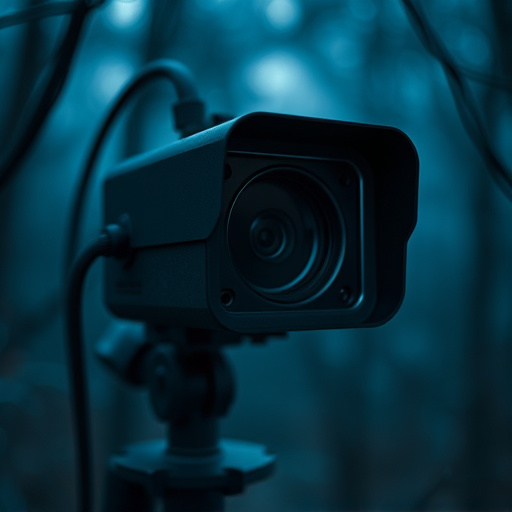Tenants worldwide face growing concerns over hidden cameras in rental spaces. Proactively inspect common areas and private rooms for signs of covert surveillance, focusing on high-risk zones. If suspicious devices are found, document evidence and report it to authorities or tenant advocacy groups. Landlords using hidden cameras with night vision recording capabilities must respect tenants' rights by providing transparency. Review lease agreements and be aware of entitlements; proactive measures safeguard personal spaces from privacy intrusions.
Uncover the hidden corners of rental properties where secret surveillance spots with night vision recording devices may lurk. This article delves into the world of covert monitoring, revealing common concealment spots that landlords might use. We empower tenants by outlining their rights and offering practical options to protect privacy in the face of potential hidden cameras with night vision recording capabilities. Stay informed and secure your space.
- Uncovering Hidden Cameras in Rental Spaces
- Night Vision: Common Concealment Spots
- Protecting Privacy: Tenant Rights and Options
Uncovering Hidden Cameras in Rental Spaces
Uncovering hidden cameras in rental spaces is a growing concern for tenants across the globe. While landlords have legitimate security interests, deploying covert surveillance equipment without consent raises serious privacy issues. Tenants should be vigilant and proactive in protecting their personal space. Regularly inspect common areas and private rooms for any signs of suspicious devices, such as small, unnoticeable cameras with night vision recording capabilities.
Focus on high-risk zones like bedrooms, bathrooms, and hallways. Look for subtle attachments to walls or ceilings, unusual wiring, or even hidden compartments. If you suspect a violation of your privacy, document the evidence carefully and report it to local authorities or tenant advocacy groups. Knowledge is power; understanding potential surveillance tactics empowers tenants to advocate for their rights and ensure their rental properties remain safe, private sanctuaries.
Night Vision: Common Concealment Spots
In the realm of secret surveillance, night vision plays a pivotal role in ensuring covert operations remain undetected. One of the most common concealment spots for hidden cameras equipped with night vision recording capabilities is within electrical outlets or light fixtures. These seemingly innocuous items provide an ideal cover, as their regular use makes them less conspicuous. By day, they blend seamlessly into the background, and by night, they become powerful tools for surveillance, capturing activities without raising suspicion.
Another strategic location is behind mirrors or inside mirrors’ frames. Mirrors can reflect light, making them harder to discern in low-light conditions. A hidden camera positioned cleverly behind a mirror can record high-quality footage while remaining virtually invisible. This tactic is particularly effective in bathrooms or bedrooms, where mirrors are commonly found, allowing for discreet monitoring of sensitive areas without occupants noticing any unusual activity.
Protecting Privacy: Tenant Rights and Options
Tenant privacy is a significant concern in the rental property landscape, especially with the advent of advanced technology like hidden cameras with night vision recording capabilities. While landlords have valid security and maintenance reasons for installing such devices, it’s crucial to respect tenants’ rights and inform them about surveillance measures. Transparency is key; landlords should disclose the presence of cameras, their purpose, and where they are located within the property.
Tenants have options when it comes to protecting their privacy. They can review lease agreements carefully, seeking clarifications on surveillance practices and the legal standing of such actions. Many regions also have tenant rights organizations that offer guidance and support for individuals facing privacy intrusions in rental accommodations. It’s essential for tenants to be proactive, ensuring they understand their entitlements and taking steps to safeguard their personal spaces from unwarranted intrusion, including the use of hidden cameras with night vision recording capabilities.
In light of the above discussions on uncovering hidden cameras with night vision recording in rental properties, it’s crucial for tenants to be vigilant and informed. While landlords have legitimate security concerns, protecting privacy is a fundamental right. By staying aware of common concealment spots and understanding tenant rights, individuals can safeguard their personal spaces. Always remember to inspect your surroundings and consider installing privacy-enhancing measures to ensure peace of mind in your rental home.
